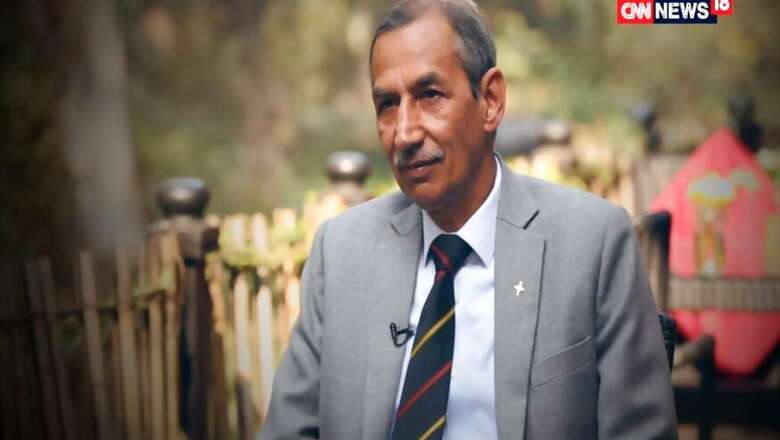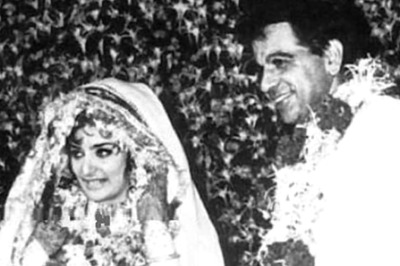
views
Srinagar: Lt. General (retired) DS Hooda, who led the surgical strikes in Pakistan in September 2016 following the militant attack in Uri, has said in a 42-page national security document he submitted to Congress president Rahul Gandhi that “contentious issues that could provide a trigger for more disturbances should currently be kept on the backburner while attempts are made to arrive at a political consensus on these subjects.”
While the former Northern Army Commander makes no mention of Article 35 A and Article 370, senior BJP leaders have repeatedly emphasised the party’s commitment to abrogate Article 370, which guarantees special status to Jammu and Kashmir.
“There must be a clearly defined political objective that aims to mainstream Jammu and Kashmir with the rest of India. This will set into motion an ‘All of Government’ approach that synergises the actions of various central and state agencies,” the report by General Hooda read.
“This will also provide clear guidelines for the security forces to formulate their military strategy and define metrics for realistically gauging success. This will bring in the much-needed consistency in holistically dealing with the problem.”
The report further said a “peaceful resolution” of Kashmir-like issues “will significantly boost our security, enabling our people to live in harmony and fully utilize the benefits of India’s growth.”
“It will also lessen opportunities for inimical forces to exploit our fault lines and impede our progress,” the report added.
The three decade-long conflict of Kashmir, which remains the biggest challenge for the country, has seen heightened tensions off late.
Hooda said there were two key factors responsible for the “continuing strife in Jammu and Kashmir” — the “constant support of Pakistan to terror activities” and the “sense of anger and alienation among sections of the population in Kashmir valley.”
“This is exacerbated by growing radicalisation, and the separatists exploiting the narrative of the Kashmiri identity being under threat. Street protests have become common, and there is regular interference by civilians in military operations, leading to rising civilian casualties,” the report said, adding, “the rise in number of local youths joining” militancy is a “worrying trend”.
“Local recruitment has jumped from 16 in 2013 to almost 200 in 2018. Poorly trained and equipped, these local terrorists are no match for the army, but their funerals attract thousands of mourners and become a recruiting ground for more youth to pick up the gun,” it read.
Use of social media, the report said, “has resulted in a growing emotional divide that leads to further alienation of the community.”
A solution for the problem of Kashmir, Hooda wrote was “complex” because of the “transnational (support from Pakistan) and an internal dimension”.
“Both dimensions need to be tackled with equal emphasis,” it read.
Hooda has also advocated for “reducing violence levels” immediately to bring normalcy in the Valley. “It is only after this that further steps can be taken for a long-term resolution to this difficult problem,” the retired general said.
“And calm will come only if we deal with the people of Jammu and Kashmir with empathy and understanding.” He also called for “a well-crafted information campaign that attempts to replace uncertainty and fear with hope.”
Besides raising the apparent problems, he has also talked about “an intra-state dialogue among the people of Jammu, Kashmir and Ladakh” terming it as “essential to bridge their differences.” “The civil society must be encouraged to take the lead in this initiative,” he added.
Hooda’s report further noted that peace could not be achieved without addressing the issue of displaced Kashmiri Pandits.
“The vexing problem of the displaced Kashmiri Pandit community must be squarely faced to find an honourable solution. As long as any part of the population feels ignored or discriminated, it will be difficult to find appropriate answers,” he said.
Regarding the killing of militants in the Valley, Hooda said, “This is not the primary measure of success or conflict resolution.”
“Serious efforts are required for countering radicalisation,” he said, adding that, “there is a need to initiate structured programmes that bring together civil society members, family groups, educationists, religious teachers and even surrendered terrorists in an effort to roll back radicalisation.”
On the safety of the forces in the Valley, the report said that issues like “better protective equipment, bulletproof vehicles, counter-IED technology, surveillance and early-warning devices and strong garrison security must be made on priority.”




















Comments
0 comment